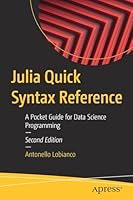
Introduction to the Simulation of Dynamics Using Simulink
- Length: 332 pages
- Edition: 1
- Language: English
- Publisher: Chapman and Hall/CRC
- Publication Date: 2010-07-02
- ISBN-10: 1439818975
- ISBN-13: 9781439818978
- Sales Rank: #5507030 (See Top 100 Books)
Designed for undergraduate students in the general science, engineering, and mathematics community, Introduction to the Simulation of Dynamics Using Simulink® shows how to use the powerful tool of Simulink to investigate and form intuitions about the behavior of dynamical systems. Requiring no prior programming experience, it clearly explains how to transition from physical models described by mathematical equations directly to executable Simulink simulations.
Teaches students how to model and explore the dynamics of systems
Step by step, the author presents the basics of building a simulation in Simulink. He begins with finite difference equations and simple discrete models, such as annual population models, to introduce the concept of state. The text then covers ordinary differential equations, numerical integration algorithms, and time-step simulation. The final chapter offers overviews of some advanced topics, including the simulation of chaotic dynamics and partial differential equations.
A one-semester undergraduate course on simulation
Written in an informal, accessible style, this guide includes many diagrams and graphics as well as exercises embedded within the text. It also draws on numerous examples from the science, engineering, and technology fields. The book deepens students’ understanding of simulated systems and prepares them for advanced and specialized studies in simulation. Ancillary materials are available at http://nw08.american.edu/~gray
Table of Contents
Chapter 1 Introduction and Motivation
Chapter 2 the Basics of Simulation in Simulink
Chapter 3 Simulation of first-order Difference equation Models
Chapter 4 Simulation of first-order Differential equation Models
Chapter 5 fixed-Step Solvers and numerical Integration Methods
Chapter 6 Simulation of first-order equation Systems
Chapter 7 Simulation of Second-order equation Models: nonperiodic Dynamics
Chapter 8 Simulation of Second-order equation Models: Periodic Dynamics
Chapter 9 higher-order Models and Variable-Step Solvers
Chapter 10 advanced topics: transforming ordinary Differential equations, Simulation of chaotic Dynamics, and Simulation of Partial Differential equations







